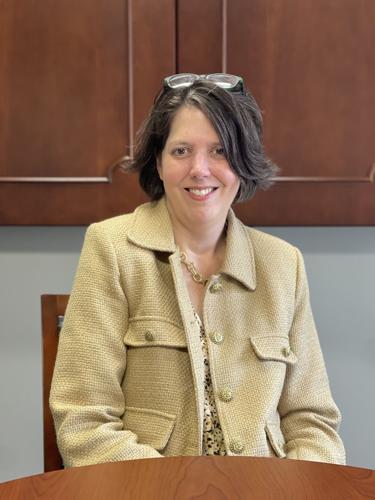
By CHARDA PEARSON Education and Business Reporter
In a bold shift that educational leaders say enhances academic flexibility, Western Piedmont Community College (WPCC) announced that by fall 2025, 85%-90% of its college credit courses will transition to an accelerated eight-week schedule, a significant departure from the traditional 16-week format.
According to Cindy Davies, vice president of academic affairs & workforce development, faculty and staff were notified of the shortened academic terms in April.
Some professors were eager to make the change and have piloted the program early. Robert Vasile, information technology instructor, transitioned his courses last fall.

Cindy Davies / FOR THE PAPER
“In the eight-week courses, my students have shown greater focus and drive. The shorter timeframe helps them stay engaged and motivated because they can more easily see the finish line,” Vasile said.
Other colleges participating in the eight-week courses are Isothermal Community College (N.C.), Trident Technical College (S.C.), Western Technical College (Wis.), Amarillo College (Texas), and Odessa College (Texas).
Participating colleges have followed a model provided by Achieving the Dream (ATD) entitled “Preparing for Shortened Academic Terms.” Davies said WPCC will follow the same model.
Research cited by ATD shows an increase in student course success rate, full-time enrollment, and graduation rates, and a decrease in withdrawal rates.
“At WPCC, we continuously look for ways to enhance every student’s opportunity for success. We believe that a transition to eight-week courses will improve success rates for more students,” said Dr. Joel Welch, president of WPCC.
Davies says there will be an exceptions team that will evaluate classes that are time-specific and unable to be put on an eight-week schedule.
SCHEDULING
A traditional 16-week course schedule would normally consist of 12-15 credit hours, leaving students to juggle the course load of four to five classes per semester.
With the eight-week schedule, students will take two classes at once, completing the courses in six weeks before moving on to the next set of courses.
Essentially, students will complete the same amount of credit hours by the end of the year. A year-round student schedule would mirror this format:
Fall
- August to October = 6 credits
- October to December = 6 credits
- January to February = 6 credits
- March to April = 6 credits
Summer
- May to June = 6 credits
- July to August = 6 credits
Davies said teachers are maintaining academic rigor, reorganizing their courses to fit the new school. In addition, teams and departments across the college are considering policies and procedures that may need revamping.
WPCC will measure data from this transition through student headcount, credit hours attempted and completed, progression to future semesters (retention), course success rates, course withdrawals, and student satisfaction.
STUDENT BENEFITS
According to Davies, students will benefit from the eight-week schedule because they can focus on fewer courses at once.
Students will also have more opportunities to get back on pace if they need to drop a course. In many cases, a student will have up to five chances to retake a course in one year versus the three they have now.
Gerald Sepez, Student Government Association secretary and student at WPCC, is obtaining an Associate in Science Degree and serves on the Communications Team for eight-week planning.
“I think the eight-week course model is great because it creates a more focused learning environment and allows me to concentrate on fewer subjects at a time. It’s challenging, but the shorter timeframe helps me stay disciplined and on top of my studies,” Sepez said.

GERALD SEPEZ / FOR THE PAPER
PREPARATION
To prepare for the shift, WPCC will hold information meetings, mini orientations, and spring/fall advising sessions. Davies says case management, advisers, and coaches will be on hand to help with the process.
In addition, there are 10 teams at WPCC tackling this project. Members are comprised of WPCC faculty, staff, students, and partners at Burke County Public Schools (BCPS).
